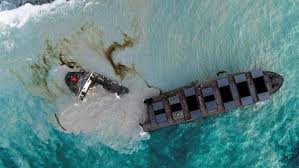Exploring the Splendor of Mauritius: A Jewel in the Indian Ocean

Introduction to Mauritius
Located in the Indian Ocean, Mauritius is an island nation known for its stunning landscapes, diverse cultures, and vibrant economy. This small archipelago has become a key tourist destination, attracting millions of visitors each year with its picturesque beaches and rich history. The relevance of understanding Mauritius extends beyond tourism; it encompasses its cultural heritage, economic advancements, and ecological initiatives that make it a significant player on the global stage.
Tourism and Economic Impact
Tourism is a cornerstone of Mauritius’ economy, contributing approximately 25% of the nation’s GDP. In 2022, the country welcomed over 1.4 million tourists, a significant rebound from the pandemic, indicating the resilience of the travel sector. The island’s allure lies not only in its beautiful beaches but also in activities ranging from hiking in the Black River Gorges National Park to engaging in water sports such as snorkeling, diving, and sailing.
Moreover, the Mauritian government has taken substantial steps to ensure the preservation of its natural beauty while promoting sustainable tourism. Programs encouraging eco-friendly practices among hotels and local businesses aim to limit the environmental impact of tourism and promote the island’s natural resources.
Cultural Diversity
Mauritius is known for its multicultural population, with influences from Indian, African, Chinese, and European heritage. This rich blend of cultures is evident during celebrations such as Diwali, Eid, and Chinese New Year, where locals come together to celebrate their diverse backgrounds. Furthermore, this cultural diversity enhances the culinary experiences offered on the island, with a range of flavors that attract food enthusiasts from around the world.
Environmental Protection Efforts
As an island nation, Mauritius faces unique environmental challenges, particularly concerning biodiversity and climate change. The government and various NGOs have been actively involved in conservation efforts. Initiatives such as the rehabilitation of coral reefs and the protection of endemic species showcase a commitment to protecting the island’s natural heritage.
Conclusion: The Future of Mauritius
Looking ahead, Mauritius is poised for continued growth as both a tourist destination and a model for sustainable development. Its ability to balance economic growth with environmental preservation will be crucial in maintaining its status as a sought-after destination. For both potential visitors and global observers, Mauritius represents not only an idyllic getaway but also an important case study in blending culture, economy, and ecological responsibility.









